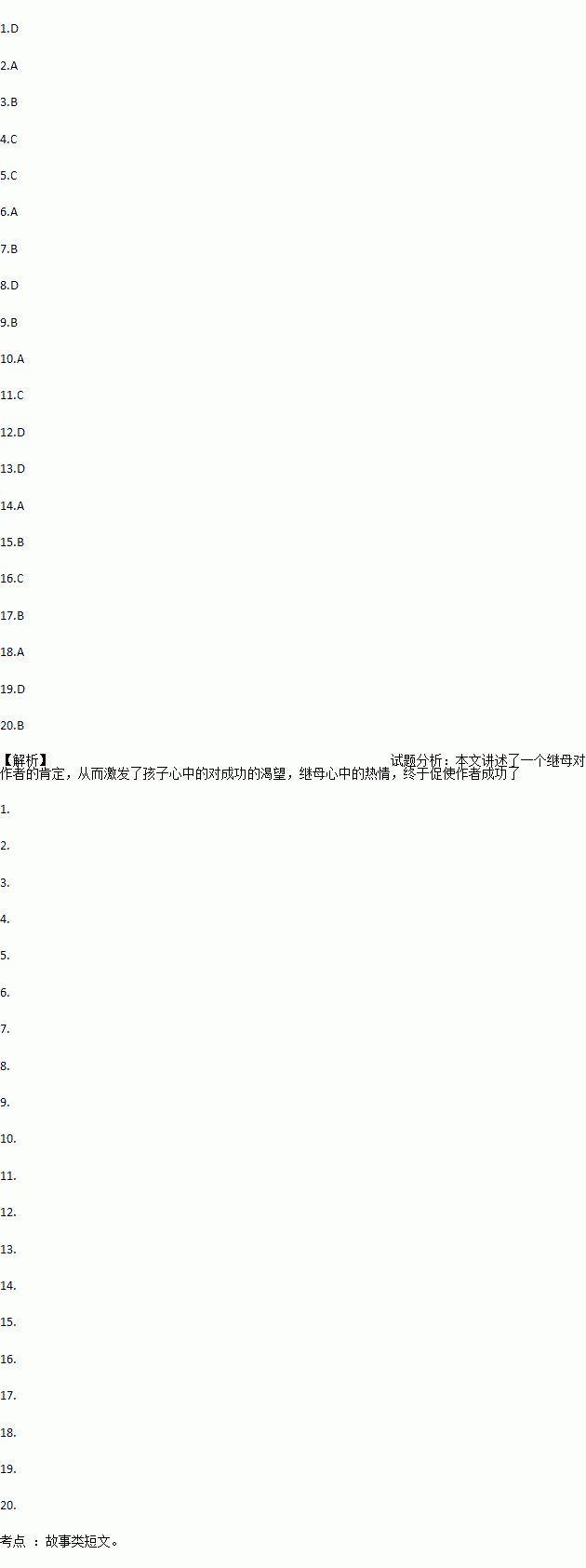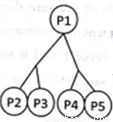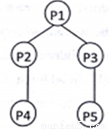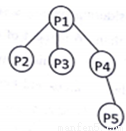题目内容
Another person’s enthusiasm was what set me moving toward the success I have achieved. That person was my stepmother.
I was nine years old when she entered our home in rural Virginia. My father______me to her with these words :“I would like you to meet the fellow who is_______for being the worst boy in this county and will probably start throwing rocks at you no _______than tomorrow morning.”
My stepmother walked over to me, _______my head slightly upward, and looked me right in the eye. Then she looked at my father and replied, “You are _______.This is not the worst boy at all, _______the smartest one who hasn’t yet found an outlet(释放的途径)for his enthusiasm.”
That statement began a(n) ________between us. No one had ever called me smart, My family and neighbors had built me up in my _____ as a bad boy. My stepmother changed all that.
She changed many things. She _______my father to go to a dental school, from which he graduated with honors. She moved our family into the county seat, where my father’s career could be more _______and my brother and I could be better________.
When I turned fourteen, she bought me a secondhand________and told me that she believed that I could become a writer. I knew her ernthusiasm,I_______it had already improved our lives. I accepted her ______and began to write for local newspapers. I was doing the same kind of_____ that great day I went to interview Andrew Carnegie and received the task which became my life’s work later. I wasn’t the _______beneficiary (受益者).My father became the ________man in town. My brother and stepbrothers became a physician, a dentist, a lawyer, and a college president.
What power _____ has! When that power is released to support the certainty of one’s purpose and is ______strengthened by faith, it becomes an irresistible(不可抗拒的)force which poverty and temporary defeat can never ________.
You can communicate that power to anyone who needs it. This is probably the greatest work you can do with your enthusiasm.
1.A. rushed B. sent C. carried D. introduced
2.A. distinguished B. favored C. mistaken D. rewarded
3.A. sooner B. later C. longer D. earlier
4.A. dragged B. shook C. raised D. bent
5.A. perfect B. right C. wrong D. impolite
6.A. but B. so C. and D. or
7.A. agreement B. friendship C. gap D. relationship
8.A. opinion B. image C. expectation D. mind
9.A. begged B. persuaded C. ordered D. invited
10.A. successful B. meaningful C. helpful D. useful
11.A. treated B. entertained C. educated D. respected
12.A. camera B. radio C. bicycle D. typewriter
13.A. considered B. suspected C. ignored D. appreciated
14.A. belief B. request C. criticism D. description
15.A. teaching B. writing C. studying D. reading
16.A. next B. same C. only D. real
17.A. cleverest B. wealthiest C. strongest D. healthiest
18.A. enthusiasm B. sympathy C. fortune D. confidence
19.A. deliberately B. happily C. traditionally D. constantly
20.A. win B. match C. reach D. doubt
 天天向上一本好卷系列答案
天天向上一本好卷系列答案 小学生10分钟应用题系列答案
小学生10分钟应用题系列答案

 B.
B. 
 D.
D. 